A Call to Serve: Rural Policing in Montana
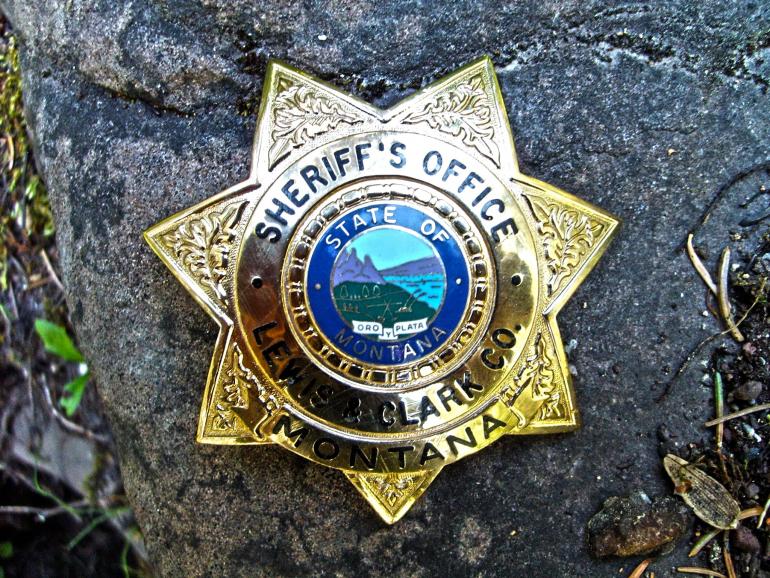
Image courtesy of L&C County Sheriff's Office
Awakening at 3 a.m. to jingling keys and the unmistakable ripping of Velcro from the unfastening of a bullet-resistant vest was always a peaceful predawn ritual for me. It was so much better than the silence that prevailed through the darkest part of the night – long after our three boys were tucked into bed. Spelling lists, sporting events, dinner, chores, and the chaos of my own job in public service were effective distractions during the daylight hours, but nothing can drive those stark realities back into the shadows when you’re alone at night and the person you love is out dealing with the worst situations our society has to offer.
There are not sufficient words to effectively describe the immense pride I feel for my husband’s 24 years of service as a peace officer in rural Montana. The same can be said for those he served alongside – the brothers and sisters behind the badge who continue to do everything in their power to make sure they help one another get home each day.
Unfortunately, we’ve also felt the gut-wrenching agony that comes with losing people in the line of duty, often in the most horrific of ways. We’ve witnessed the pain in the eyes of the family members they left behind, and it is nearly impossible not to think of them during those darkest hours of the night.
I know countless law enforcement spouses who feel the same sense of relief when they are jolted from their sleep by those telltale noises assuring them their partner made it safely back home again.
We love the sound of Velcro.
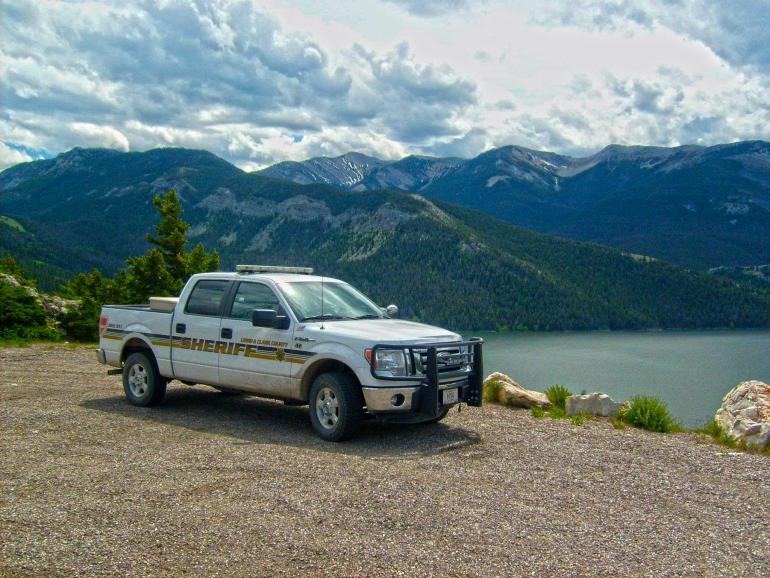
Photo courtesy of the Lewis and Clark County Sheriff's Office
A Call to Serve
My husband, Hill County Sheriff’s Office Chief Deputy Cory Matkin, spent his entire law enforcement career working in rural northcentral Montana prior to his retirement in the fall of 2020. He was barely out of high school when he took his first job as a dispatcher and detention officer in the tiny town of Chinook.
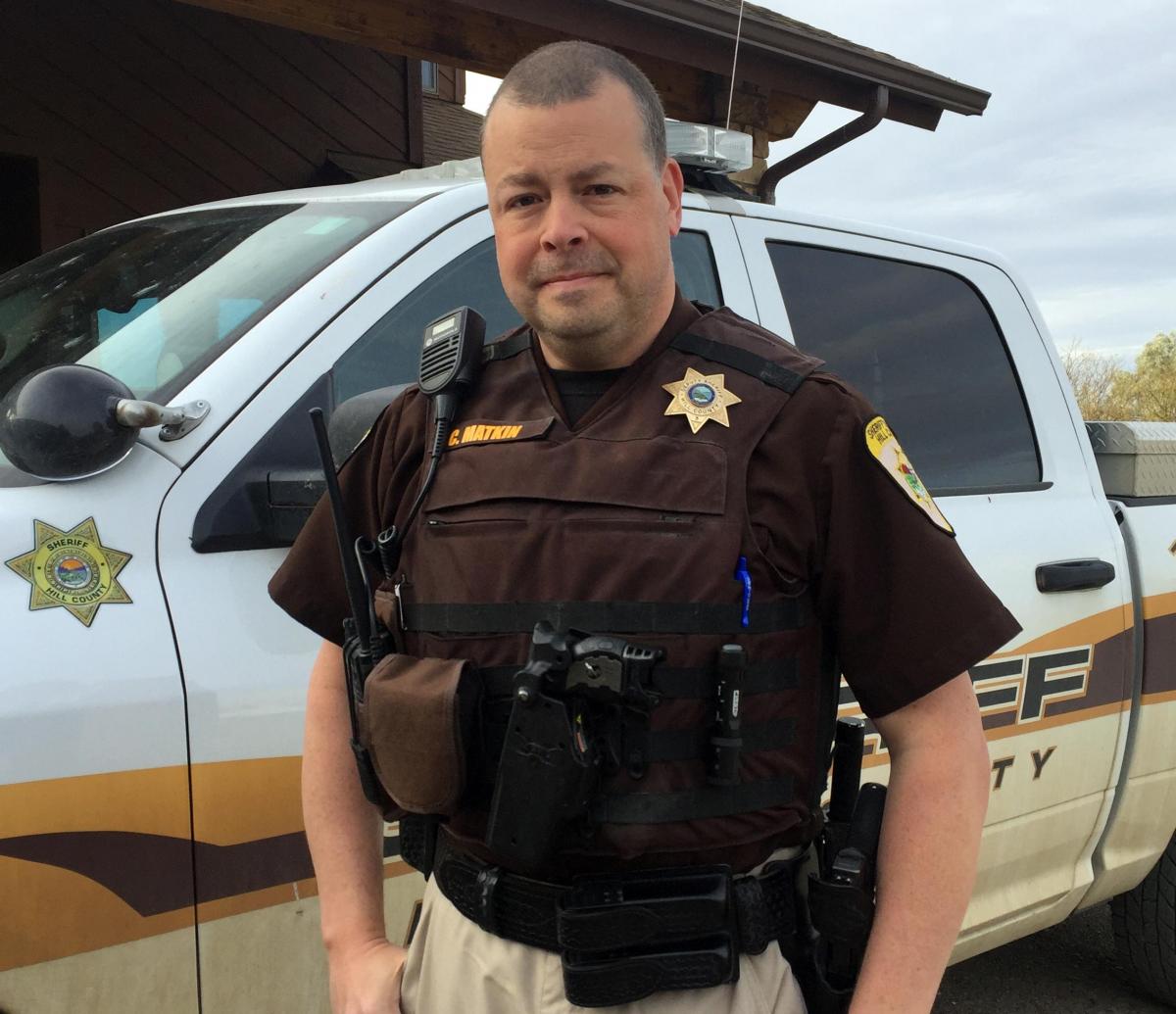
“I wanted a job that would be different every day – something where I wasn’t confined to an office, and something that gave back to and improved the community,” Matkin recalled of his early days. “I was also drawn to the excitement. It was going to be law enforcement or the military for me.”
Mike Flanagan, retired U.S. Border Patrol Chief Patrol Agent of the Havre Sector, was also drawn to the field of law enforcement shortly after high school. He began working as a part-time, seasonal officer for the Saratoga Springs Police Department in New York in 1985, following in the footsteps of his father.
“I had no real plans to pursue it as a career, but after doing it for a few months, I knew it was what I wanted,” Flanagan said.
Over the course of the next three decades, he skyrocketed through the ranks of the U.S. Border Patrol, working in six states and ultimately becoming one of only 20 sector chiefs in the nation.
Lewis and Clark County Sheriff Leo C. Dutton said his career as a public servant was inspired by his father, WWII veteran Joe Dutton. Sheriff Dutton described his father as a “jack of all trades,” and credited him with helping him fall in love with flying and working as a paramedic.
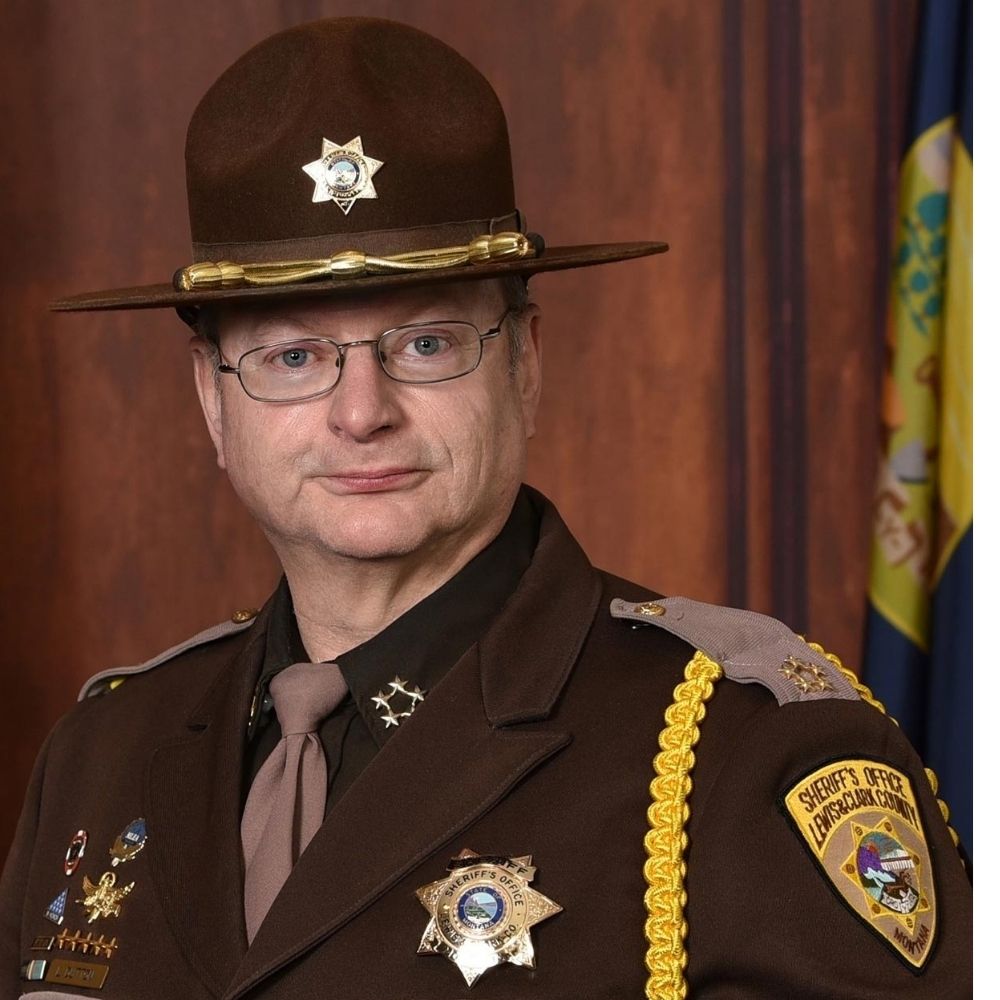
“I got to see some good examples of peace officers growing up,” he explained. “I think I always had a sense of justice and always felt badly when I saw someone unfairly being taken advantage of.”
At one point in his public service career, Sheriff Dutton was simultaneously working as an EMT/paramedic, a flight instructor, and a part-time deputy. He decided to make his peace officer position a full-time career in 1996.
“I never dreamed I was going to be sheriff,” he said. “I just wanted to be a deputy and wanted to be working the streets, but over time your goals change and in 2003 I had the opportunity to become the undersheriff and began to see how I could effect the philosophy of an entire office…I wanted to be a part of that and to create a team with our community.”
Technology, Funding, and Policing Solo
Working as a peace officer in the patchwork of rural communities blanketing much of Montana presents a host of complications that vary greatly from the hurdles faced by agencies in more populated areas. Although the nature of the calls tend to be similar across jurisdictions, many of our rural peace officers are forced to handle them with far fewer resources – to include the possibility of not having backup.
“The land area or jurisdiction you’re responsible for can be much larger, and distance between calls can be significant,” Matkin noted. “The availability of backup is consistently less, whether that is due to staffing levels or the proximity of assisting officers. You’re often working alone, or your nearest backup may be 40 minutes away when needed. You learn to work effectively by yourself...or at the minimum, to be very diplomatic until your backup arrives.”
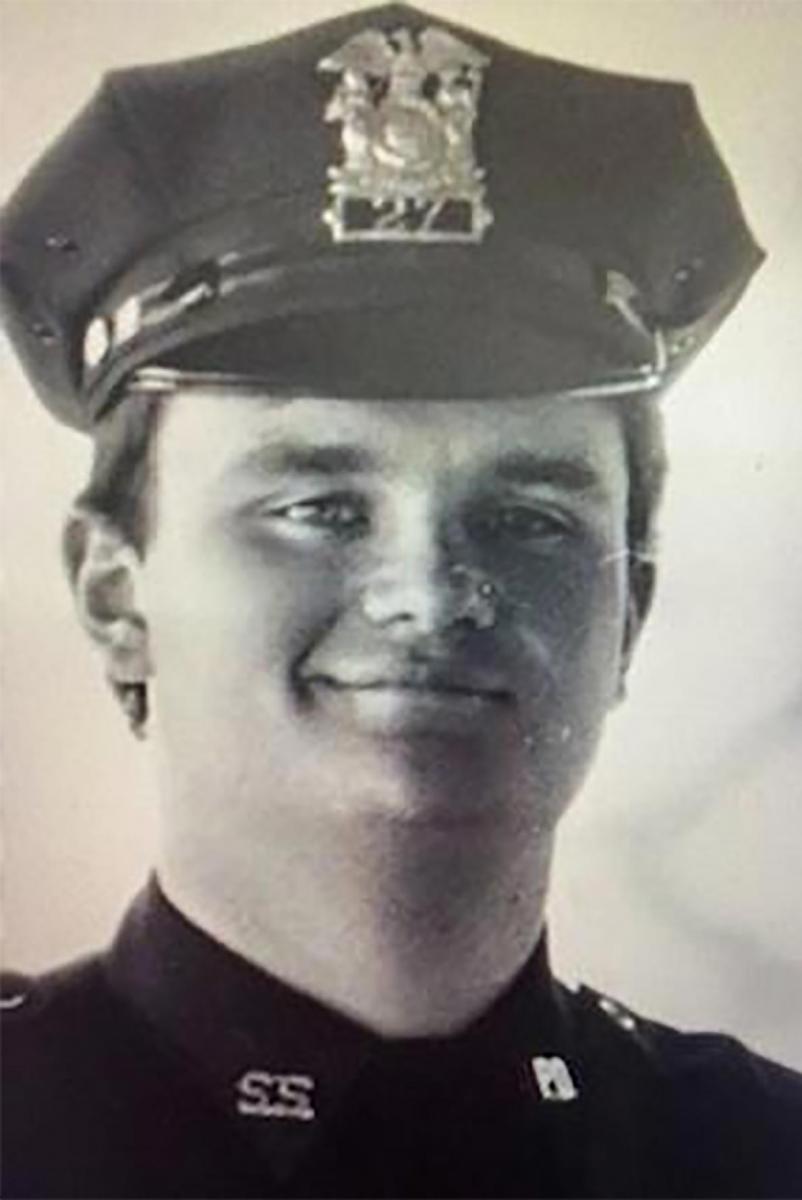
Flanagan said learning to work alone was one of the biggest adjustments he had to make when he moved to Montana after serving in densely-populated areas on the southwestern border or in places like Washington, D.C. and Miami, especially after he retired from the Border Patrol and began working as a Hill County sheriff’s deputy.
“Help can be a long time coming,” he agreed. “Most of the time, you are alone. You really must be equipped to handle whatever comes up. Even if there are other people on duty, they may be unavailable to respond or could be an hour away.”
Montana’s lower population also means there are fewer tax dollars to devote to law enforcement agencies, regardless of the sprawling landmass.
“Vehicles, staffing, equipment, pay and benefits were an issue that a rank-and-file officer can’t really do anything about,” Flanagan said. “When I started as a deputy, my patrol vehicle was 15 years old with a door that wouldn’t completely close. Driving on the highway sounded like you had just jumped out of an airplane skydiving. But that was all there was.”
High turnover is also a frequent problem for rural departments.
“Most of the time they left because of low pay or cost of health insurance,” Flanagan said. “Losing seasoned officers is highly detrimental to any agency, [and] hiring replacement officers is expensive, especially factoring in the basic field training cost.”
While department budgets remain tight, society is demanding – and expecting – Montana’s peace officers to find a way to secure and implement cutting-edge technology, often without added funding.
“There was a day when a law enforcement officer’s testimony in court was deemed credible and meant something,” Matkin said. “But today, it seems that an officer’s account may mean very little. Judges and juries want physical, DNA evidence, photographs, and video, and this produces its own host of problems for rural law enforcement agencies. Where does the money come from for costly in-car cameras or bodycams? As the public demand for these capabilities and equipment goes up, more often than not, the department’s budget stays the same.”
When peace officers try to “do more with less,” burnout, tension, decreased safety, and resentment tend to follow, resulting in a loss of fantastic officers, Matkin added.
Despite these hardships, Flanagan said peace officers in Montana find ways to persevere.
“They did more with less than any group I’ve ever worked with,” he noted. “The residents where I lived in Montana get very high-quality police protection…at a bargain price.”
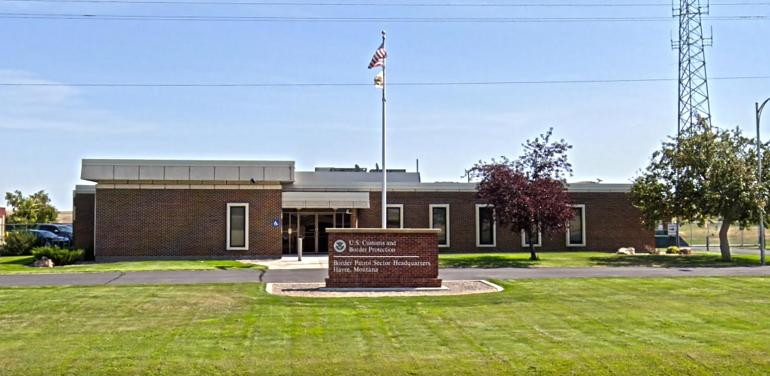
Havre Border Patrol Sector
Confronting Growing Violence
With nearly 90 years of combined experience among the three of them, Sheriff Dutton, Flanagan and Matkin all agree they have witnessed concerning changes in the violent nature of the calls they have responded to in recent years.
“The call volume has gone up four- or five-fold and we are seeing substantially more violence,” Sheriff Dutton said without hesitation. “Gun calls, domestic violence calls…the calls are getting more risky, more violent. We’re training for that, but you can only train so much.”
Sheriff Dutton said he believes much of the uptick in the violent nature of the calls peace officers are handling can be traced back to the culture of alcoholism and drug addiction.
“It has absolutely played a role in the increased violence. Especially methamphetamine,” he noted.
“I’d say the offenders have changed only in their readiness to flee or to use violence against law enforcement,” Flanagan agreed. “It seems much more common in recent years.”
What About the Victims?
Rehabilitation and offender accountability are complex issues with no simple solutions. Many of us who have spent time in public service have witnessed the pendulum swing over the years from heavy use of imprisonment to heavy use of treatment, mental health services, probation, and plea bargains. But while a spotlight has been aimed at the rights and hardships of those who have broken the law, very little attention is being paid to Montana’s crime victims.
Similarly, many well-intentioned members of society refuse to accept the harsh reality that not everyone who breaks the law wants to accept help, to make changes, and to become a productive member of society. Peace officers and other components of the criminal justice system are often trying to help people who do not want to help themselves, and they grow frustrated as they watch the numbers of victims grow in the interim.
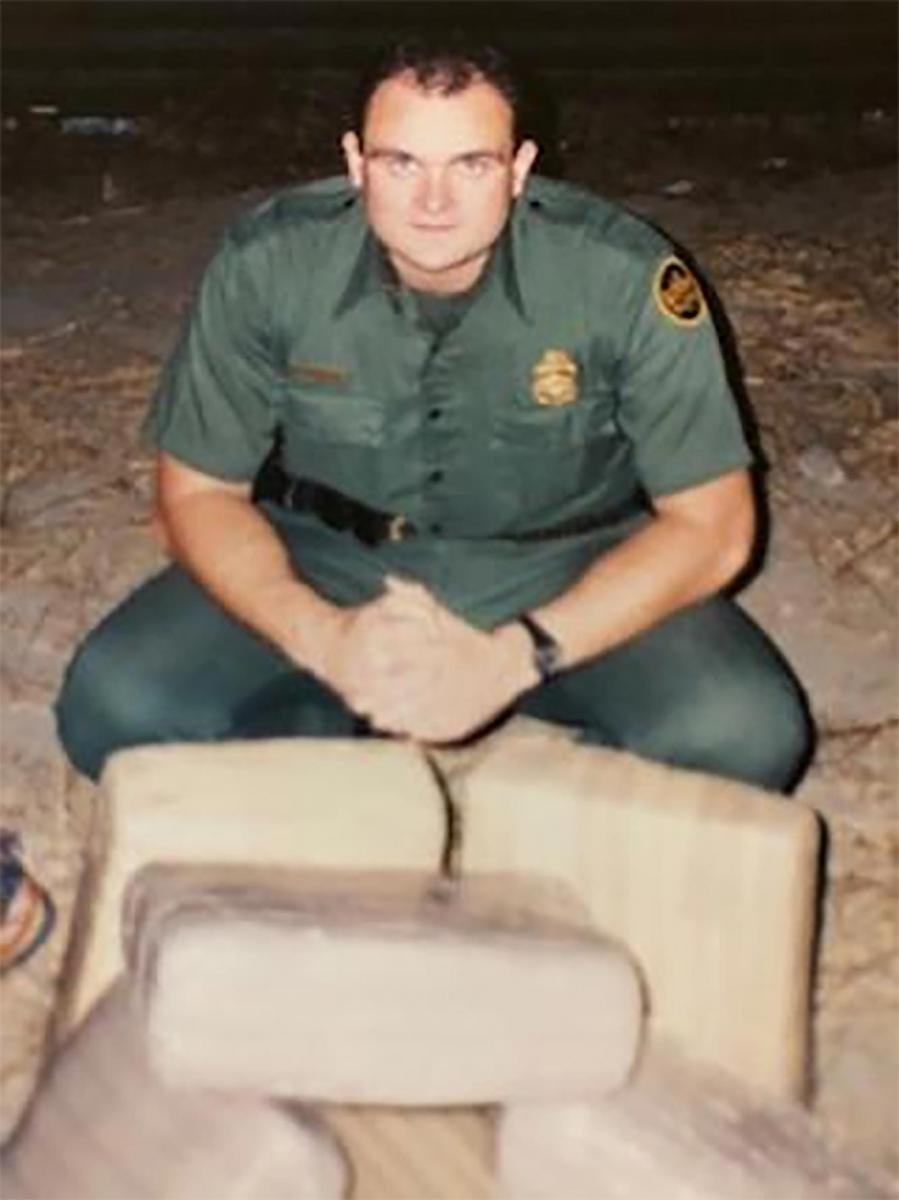
“The vast majority of the offenders that I had dealings with were chronic repeat offenders. We often knew each other by first name,” Matkin explained. “I often equated it to 10 percent of the population using 90 percent of law enforcement resources. I can’t help but think that if consequences had been more severe or progressively severe, the cycle could be broken.”
“I’ve seen sentences become more and more lenient and/or treatment-based,” he added. “I’m not saying that I’m against treatment, but when a person has absconded or going to treatment on the tax payer’s dime has failed four or five times, it might be time for more serious consequences in terms of incarceration.”
Having worked in multiple facets of public service, to include time as an adult probation and parole officer and as a Child Protective Services social worker investigating allegations of child abuse and neglect, I learned that some people will do everything in their power to succeed if given access to the proper tools, resources, and support. But try as we might, there will always be a portion of the population who will not make changes to better their lives, regardless of the consequences. It is their right to make that decision, but it does not mean they have the right to create more victims if they choose to turn away from the resources they are offered.
“People forget their rights end at the end of their nose, and someone else’s begins,” Sheriff Dutton noted.
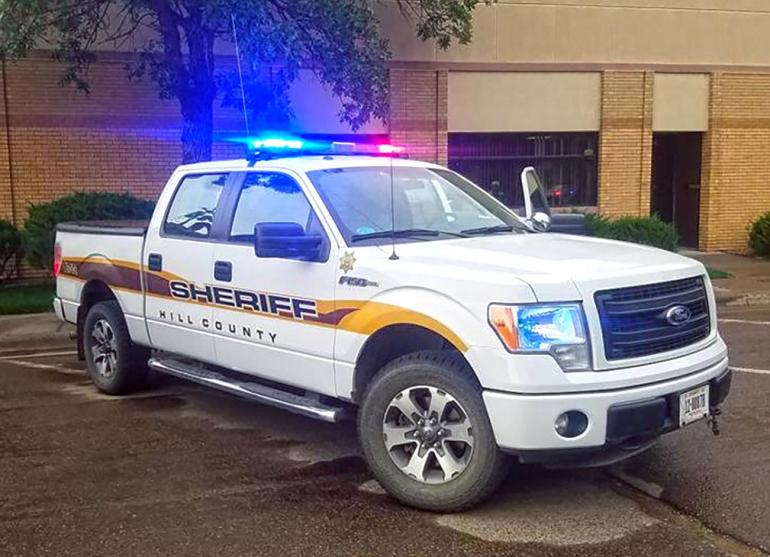
Hill County Patrol Unit
Get To Know Your Courtrooms
Although peace officers are only one component of the criminal justice system, many people mistakenly believe they have a much larger role in the outcome of cases.
“More often than not, when a criminal isn’t held accountable, the police are quick to receive the blame,” Matkin said. “However, a law enforcement agency can only be as strong as their prosecutor’s office. If certain crimes aren’t charged and vigilantly pursued through the court system, the criminal justice system appears to fail the citizens.”
Montana residents would do well to learn more about their local, county, and state courts to have a greater personal understanding of the decisions prosecutors and judges are making.
“Citizens should do their due diligence when voting for their local prosecutor, as that position has a tremendous responsibility and effect on law enforcement relations, public safety, and quality of life in our communities,” Matkin said.
What Our Longtime Officers Wish You Knew
If there is a fairly uniform regret among our nation’s peace officers, it would likely be the impact the job inevitably has on family members and relationships. Missed birthdays, being called out during the big game, and celebrating holidays before or after their designated dates on the calendar just come with the territory in law enforcement families. It is a high price to pay.
“Luci and I have three boys and sometimes you do miss crucial moments, which I regret,” Sheriff Dutton said quietly.
Our peace officers respond to situations most of us cannot begin to comprehend, and that doesn’t come without its scars.
“It all leaves a mark on you,” Sheriff Dutton acknowledged. “I wish people knew that you can’t just take a squeegee and make the slate clean again and go to the next call. What you see when a peace officer arrives is someone who is attentive and ready to talk to you, but the residual effects on their mental health is almost overwhelming at times.”
“You can’t unsee or unfeel it,” he added. “You burnout if you shut off your emotions and don’t feel pain or insults or anger and you don’t feel love or joy and you don’t feel happiness. I wish people knew that.”
Working In “The Last Best Place”
When Flanagan looks back on the multitude of jurisdictions he’s been blessed to work in over the years, his time in Montana is set apart by a particularly encouraging component.
“What stands out to me is the interagency cooperation. I think because there are so few law enforcement officers, everyone really comes together to accomplish the mission,” he said. “In larger ‘population dense’ areas with jurisdictional overlaps, I have seen law enforcement agency conflict that was detrimental to public safety. I saw none of that in Montana. Not one little bit.”
Flanagan, Matkin, and Sheriff Dutton all agree that as a whole, Montana residents still support their peace officers and want to work with them.
“Despite what you see on television today, I still believe most people respect and like the police,” Flanagan said. “The nature of the job has always brought animosity from some, but I believe the majority of people support the policing mission. If there has been a change, it’s been the anti-police minority becoming more aggressive and vocal.”
Sheriff Dutton has worked hard to form a partnership with the members of his community, who he lovingly refers to as his “bosses.”
“Montana gets the type of law enforcement they demand because they demand better and they treat us better,” he said. “There’s respect on both sides. We respect the citizens we serve, and our bosses – the citizens – give us respect back.”
Flanagan said he loved being a peace officer in the Treasure State.
“The weather is no joke, but it’s still a great place to be a cop,” he said.
Although those who don’t support the police tend to be the “most vocal,” Matkin said he generally felt very supported by the citizens he served.
“Supportive citizens are coming forward or standing up and being heard,” he explained. “As a result, a lot of the issues affecting the more urban areas or cities, such as defunding, removing school resource officers, or selective law enforcement and prosecution are not taking root in Montana.”
“It was nice getting the occasional ‘thank you for your service’ from a passing citizen,” he added. “I firmly believe Montana is the last best place to be a law enforcement officer.”
See for Yourself
Many law enforcement agencies now have social media pages or websites where interested community members can go to learn more about what is going on with their local departments. Peace officers also host a variety of events and community outreach programs throughout the year, and many departments will allow citizens to set up a ride-along in order to experience a shift firsthand.
Simply striking up a conversation when you see a local officer out and about between calls is another great way to learn more about your local law enforcement agencies and the men and women who commit their lives to protecting and serving our great state.
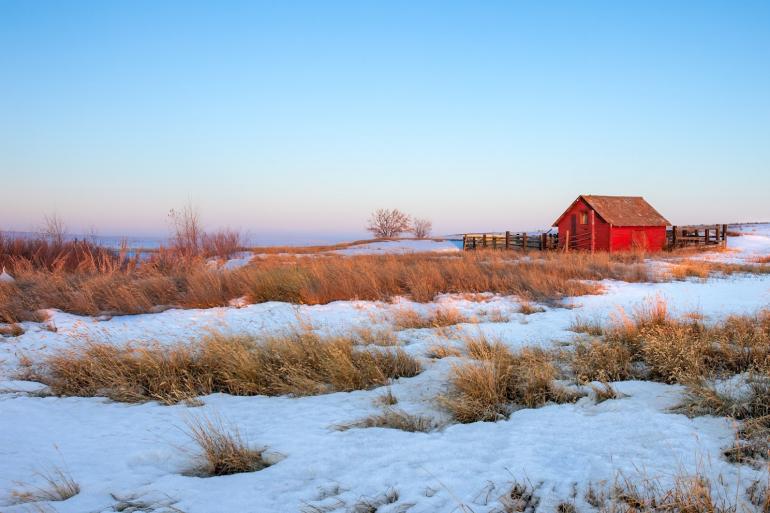
Photo by Todd Klassy











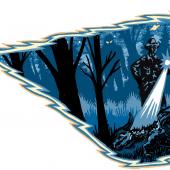
- Reply
Permalink